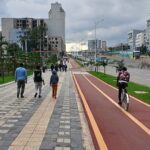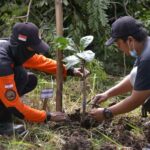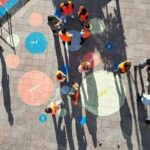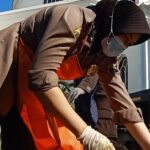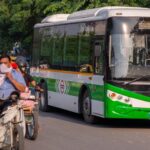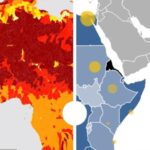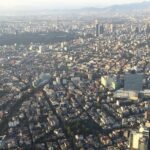Posts tagged with 'spatial inequality'
Sprawl is a known and widespread challenge for rapidly growing cities across the world. Unplanned, inefficient development encroaches on natural resources and ecosystems, often reaching far beyond established transit networks. Residents of sprawling urban areas often face socioeconomic vulnerabilities and ...

IT professional Nagarjun Kandukuru, 51, looks out of the window of his Bannerghatta Road home in Bengaluru and watches as his 16-year-old son cycles off to music class. The family has never owned a car. Kandukuru, himself, uses a motorcycle ...

Cities are not just places where people live—they are interconnected networks of people, services and economic activity. A city is a system of systems, bringing together transportation, energy, buildings, water, waste management and more. Transforming these interconnected systems is vital ...

Many people point to forest restoration as a way to curb climate change, where replanted forests sequester carbon in trees and soils. But emerging evidence shows that restoration can provide non-carbon climate benefits, too — in particular, reducing heat and regulating rainfall. Here’s what ...

For decades, urban transportation policy and practitioners have favored a model of analysis that prioritizes increasing the speed of vehicles and the time saved for people as a result. While this may make sense on an intuitive level, it is ...

About two-thirds of the world’s population will live in cities by 2050. While cities are hubs of innovation and opportunity, the increasing pace of urbanization also exacerbates inequality, stresses infrastructure, and fuels climate change, air pollution and other environmental problems. The ...

We now have less than seven years to cut emissions in half in order to keep global warming below 1.5 degrees C, the limit scientists say is necessary for averting some of the most dangerous climate impacts. 2022 saw flooding, drought and severe ...

Africa’s population is growing faster than any other continent’s and its urban population is expected to more than double by 2050. This urban rapid growth, which is mostly sprawling “horizontal” growth, as the World Resources Report: Towards a More Equal City shows, is combining with climate ...

Remote sensing has revolutionized how we measure and understand the Earth. We can now track deforestation across the globe, predict end-of-season crop yields and identify wildfires in near real-time. But exploration into its possibilities for urban areas has only just begun. ...












